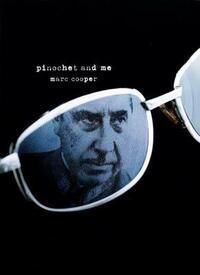Take a photo of a barcode or cover
fast-paced
emotional
informative
sad
fast-paced
Good overview of what happened from someone who was on the front lines, the author worked for Allende as a translator.
When Allende was elected, it brought hope to the rest of Latin America, as it proved that it was possible for radical social change to happen through democratic means, as opposed to violent revolution (e.g. Cuba).
Once elected Allende quickly nationalized the American copper mines and phone company, handed over oligarch's estates to their share croppers, had rents lowered and taxes on the rich increased. In circumstances where he wasn't able to give the means of production to the workers from interference by Congress, the workers took matters into their own hands and seized the farms or factories themselves. In response, oil pipelines were dynamited, the wealthy hoarded food and other consumer goods while protesting the resulting shortage, industrial production was sabotaged, and powerful forces worked behind the scenes to put an end to it all.
In addition to the internal strife, the CIA made its own efforts to sabotage the Allende government, since the US didn't like Chile's resources being nationalized instead of being open to exploitation by the US and other imperial powers, as was the custom in the rest of Latin America. The Chilean economy was squeezed by Nixon and the CIA planted discontent among the people, among other things.
On September 11, 1973, tensions finally boiled over and Pinochet put an end to it all. After the successful coup and the death of Allende, they occupied every major city, killed and tortured dissidents in concentration camps throughout the country, and imposed a 17-year long fascist dictatorship.
More than anything, this series of events serve as a warning and a lesson for those of us who wish to see a more just world and how to not go about getting it. Allende's efforts were doomed from the start simply because it was an attempt to destroy a system by using the system itself. The police, the court system, the public bureaucracy, the armed forces, etc. all serve as representatives of the system and the country's wealthy elite. They may play along to keep up appearances for a while, but once the system they represent is threatened and they're called upon to protect it, they will not hesitate to act. Perhaps we should seek alternative methods of liberation if we want to succeed.
When Allende was elected, it brought hope to the rest of Latin America, as it proved that it was possible for radical social change to happen through democratic means, as opposed to violent revolution (e.g. Cuba).
Once elected Allende quickly nationalized the American copper mines and phone company, handed over oligarch's estates to their share croppers, had rents lowered and taxes on the rich increased. In circumstances where he wasn't able to give the means of production to the workers from interference by Congress, the workers took matters into their own hands and seized the farms or factories themselves. In response, oil pipelines were dynamited, the wealthy hoarded food and other consumer goods while protesting the resulting shortage, industrial production was sabotaged, and powerful forces worked behind the scenes to put an end to it all.
In addition to the internal strife, the CIA made its own efforts to sabotage the Allende government, since the US didn't like Chile's resources being nationalized instead of being open to exploitation by the US and other imperial powers, as was the custom in the rest of Latin America. The Chilean economy was squeezed by Nixon and the CIA planted discontent among the people, among other things.
On September 11, 1973, tensions finally boiled over and Pinochet put an end to it all. After the successful coup and the death of Allende, they occupied every major city, killed and tortured dissidents in concentration camps throughout the country, and imposed a 17-year long fascist dictatorship.
More than anything, this series of events serve as a warning and a lesson for those of us who wish to see a more just world and how to not go about getting it. Allende's efforts were doomed from the start simply because it was an attempt to destroy a system by using the system itself. The police, the court system, the public bureaucracy, the armed forces, etc. all serve as representatives of the system and the country's wealthy elite. They may play along to keep up appearances for a while, but once the system they represent is threatened and they're called upon to protect it, they will not hesitate to act. Perhaps we should seek alternative methods of liberation if we want to succeed.
gorgeous and informative, shatteringly tense at times. could have benefited from some endnotes
informative
fast-paced
Presented in a journal format, this book was easy to read even for those unfamiliar with the intricacies of Chilean political and economic climate. This is a book with specific opinions, which is exactly what I liked about it – the perspective runs perpendicular to traditional concepts which makes it an intriguing learning experience. As with most opinion-based nonfiction, parts of this book should be taken with a grain of salt, but overall the writing and story-telling aspects of it made this well-worth the read.
dark
informative
sad
fast-paced


